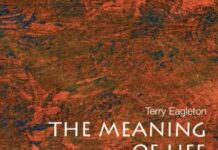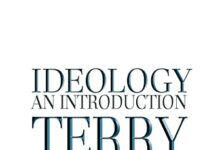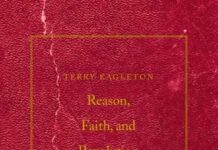
Ebook Info
- Published: 2014
- Number of pages: 245 pages
- Format: PDF
- File Size: 2.86 MB
- Authors: Terry Eagleton
Description
How to live in a supposedly faithless world threatened by religious fundamentalism? Terry Eagleton, formidable thinker and renowned cultural critic, investigates in this thought-provoking book the contradictions, difficulties, and significance of the modern search for a replacement for God. Engaging with a phenomenally wide range of ideas, issues, and thinkers from the Enlightenment to today, Eagleton discusses the state of religion before and after 9/11, the ironies surrounding Western capitalism’s part in spawning not only secularism but also fundamentalism, and the unsatisfactory surrogates for the Almighty invented in the post-Enlightenment era. The author reflects on the unique capacities of religion, the possibilities of culture and art as modern paths to salvation, the so-called war on terror’s impact on atheism, and a host of other topics of concern to those who envision a future in which just and compassionate communities thrive. Lucid, stylish, and entertaining in his usual manner, Eagleton presents a brilliant survey of modern thought that also serves as a timely, urgently needed intervention into our perilous political present.
User’s Reviews
Reviews from Amazon users which were colected at the time this book was published on the website:
⭐Nietzsche proclaimed God dead, but Eagleton shows that the shadow of God had manifested in various ways since the days of the Enlightenment: art, culture, Spirit, nature. This raises the question, What is God? While there is no easy answer to this question, Eagleton’s book gives us a good deal to mull over. As a companion piece to his Illusions of Postmodernism he makes the case at the end that elitism and the elitist embrace of postmodernism have given rise to a dangerous brand of religious extremism (just as in other realms it has led to political extremism). His solution is not to turn away from religion, but to turn toward it in a way very similar to that of the liberation theologians, working with and aligning with the poor in an effort to improve our material conditions on Earth.
⭐Mr. Eagleton outdid himself with this excellent discussion on the place and importance of the concept of a ‘God’ in our culture and why it will always be a necessary condition of an unequal society. This book is very unfortunate news for atheists and agnostics as he explains why most people will probably never have the luxury of freeing themselves from religious illusion.I was very moved by the final few pages of the book which contains a compassionate appeal for collective action to mitigate the suffering of the less fortunate. I found the tone of this appeal to be about as disheartening and fatalistic as can be in our current zero sum political situation.Religion is here to stay under these circumstances in this culture .
⭐Harrowing ride through the last two centuries of Western thought as Eagleton unpacks the multiple levels of unbelief in religion and skewers so many from the Enlightenment onward with their own bad faith in finding substitutes for God without acknowledging what they were really doing. The uncompromising atheism of Nietzsche stands in contrast to so many others who saw in culture a substitute for religion. Eagleton may not himself be a beliver, but he “gets” the raw and paradoxical call of Christianity which is so unlike the religion rejected in the West. His analysis of the emptiness and pretensions of both postmodernism and contemporary capitalism are withering. A fascinating book.
⭐Satisfying, really. A good take on a fundamental perspective. Culture is rife with deities. It’s an art form to organize power.
⭐Very good, not so easy reading.
⭐Loved the book could not put it down. Eagleton at his best.Go buy and read it as soon as possible
⭐Not as brilliant Kas I expected
⭐pleased
⭐A pretty good book. As Eagleton makes clear in the endnotes, the aim of this book is not a social history of secularism, but rather how various intellectuals, atheists to various degrees, tried to come up with something to fill the God-shaped hole left once the supreme being had been banished from their world views. Some, such as the German Idealists or the Romantics proposed some sort of spirit or supreme will to restore some sort of order or meaning to the world. It was really only when Nietzsche came along and proclaimed the ‘death of God’ when men started getting to grips that God was gone, and there was no use trying to come up with substitutes.A fairly straightforward read, assuming you have a good familiarity with most of the major philosophers and intellectual movements of the past 300 years.
⭐Nobody understands the Enlightenment and its progeny better than Eagleton (or writes so clearly) IMHO. It’s one thing to write persuasively about what we have had to relinquish in order to make progress, quite another to be as persuasive about what we have to leave behind now; he does it for me anyway.
⭐This is not an easy book to read. Eagleton spreads the literary net very wide and the sheer volume of authors he mentions is challenging to keep with and understand – especially in relation to the argument of the book. There is a suggestion of literary over-kill. However, the book rewards the reader who stays on focus and there is little doubt that the author knows his subject as he roams quite far and wide in response to the various topics he deals with, even if his presentation seems more loquacious than is probably necessary.This reviewer was somewhat surprised that Eagleton did not offer more on the contribution made by Don Cupitt, the Cambridge philosopher of religion who is, arguably, the most prolific and insightful of all those writing in English on the subject and whose contribution to the “realism” (Yes God) “anti-realism” (No God) literature is quite extensive and profound. Perhaps greater concentration on this area of the subject would have been more helpful to the kind of readers his book will undoubtedly be attracted to Eagleton’s book, if not his general writing.
⭐I have really enjoyed this book. The Theological arguments Terry Eagleton has laid out are well researched and understandable. Terry lays a great case for having a good look at how culture impacts our society including the dangers of manipulating culture. I highly recommend this book
⭐good book good service
Keywords
Free Download Culture and the Death of God in PDF format
Culture and the Death of God PDF Free Download
Download Culture and the Death of God 2014 PDF Free
Culture and the Death of God 2014 PDF Free Download
Download Culture and the Death of God PDF
Free Download Ebook Culture and the Death of God





